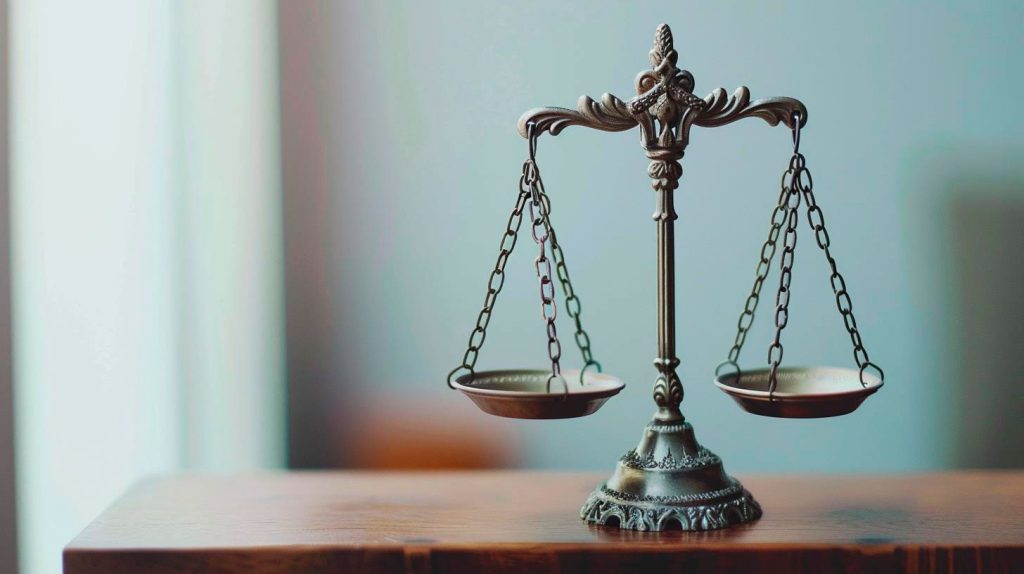
Seeking Professional Advice to Navigate Credit Score Consequences of Loan Defaults in Divorce
It’s important to understand how loan defaults in divorce can affect your credit score and the steps you can take to mitigate any negative consequences.
Understanding Credit Scores and Loan Defaults
When couples divorce, they often have joint debts such as mortgages, car loans, and credit card debt. If one spouse is unable or unwilling to make payments on these debts, it can result in loan defaults that may have a negative impact on both individuals’ credit scores. A lower credit score can make it more difficult to secure loans, obtain credit cards, or even qualify for housing or employment.
It’s important to note that even if a divorce agreement assigns responsibility for certain debts to one spouse, creditors are not bound by this agreement. If a loan is in both spouses’ names, creditors can still hold both parties responsible for any missed payments or defaults.
The Importance of Seeking Professional Advice
Given the potential consequences of loan defaults in divorce, it’s crucial to seek professional advice from a qualified attorney who specializes in family law and financial matters. An experienced attorney can help you navigate the complexities of divorce agreements, understand your rights and responsibilities regarding joint debts, and develop a strategy to protect your credit score.
Legal professionals can also negotiate with creditors on your behalf to create a repayment plan or secure a loan modification to avoid defaults. They can also advise you on the best course of action if you are unable to make payments on joint debts, such as filing for bankruptcy or seeking a debt consolidation loan.
Protecting Your Credit Score
There are several steps you can take to protect your credit score in the event of loan defaults in divorce. These include:
- Monitor your credit report regularly to ensure that all joint debts are being paid on time and in full.
- Communicate openly and honestly with your ex-spouse about joint debts and any financial difficulties you may be facing.
- Consider closing joint accounts or transferring balances to individual accounts to prevent further defaults.
By taking proactive steps to address loan defaults in divorce and seeking professional advice, you can protect your credit score and minimize any negative consequences on your financial future. Remember, it’s never too late to seek help and take control of your financial well-being.
Dealing with loan defaults in divorce can be a daunting prospect, but with the right legal guidance and proactive steps, you can navigate this challenging situation with confidence. By seeking professional advice, understanding your rights and responsibilities, and taking steps to protect your credit score, you can emerge from divorce financially secure and ready to embark on a new chapter in your life.
Remember, you don’t have to face these challenges alone. Reach out to a qualified attorney today to discuss your options and take the necessary steps to protect your financial future.
Strategies for Minimizing Credit Score Repercussions in Divorce Settlements
Understanding the Impact of Divorce on Credit Scores
When a couple gets divorced, their finances become untangled, and this can have a direct impact on their credit scores. Joint debts, like mortgages, car loans, and credit card accounts, are often divided between the two spouses. If one spouse fails to make timely payments on these joint accounts, it can negatively impact both parties’ credit scores. Additionally, if one spouse is awarded certain assets in the divorce settlement but later defaults on payments, it can also reflect poorly on the other spouse’s credit score.
According to a recent study by Experian, a leading credit reporting agency, divorce is one of the top reasons why individuals see a significant drop in their credit scores. In fact, the study found that individuals who went through a divorce saw an average credit score decrease of 30 points.
Strategies for Protecting Your Credit Score During Divorce
Fortunately, there are several strategies individuals can employ to minimize the negative impact of divorce on their credit scores:
- Close Joint Accounts: One of the first steps individuals should take during divorce proceedings is to close joint accounts to prevent any further damage to their credit scores. By closing joint accounts, each party becomes solely responsible for their own debts.
- Monitor Your Credit Report: It’s essential for individuals to regularly monitor their credit reports during and after divorce to ensure that all joint accounts are closed and that payments are being made on time. Any discrepancies should be addressed immediately to prevent further damage to credit scores.
- Establish Separate Credit: Individuals going through a divorce should start establishing their own credit history by opening individual accounts in their name. This can help build a solid credit profile and reduce the reliance on joint credit.
- Seek Legal Assistance: Consulting with a knowledgeable divorce attorney can help individuals navigate the complexities of dividing assets and debts during divorce proceedings. An experienced attorney can help protect their client’s financial interests and minimize the impact on their credit scores.
Benefits of Minimizing Credit Score Repercussions
By taking proactive steps to protect their credit scores during divorce, individuals can reap several benefits:
- Preserve Financial Stability: Maintaining a good credit score can help individuals secure loans, mortgages, and credit cards at favorable terms, ensuring their financial stability post-divorce.
- Protect Credit History: A good credit score reflects responsible financial behavior, and preserving it can help individuals build a strong credit history for future financial endeavors.
- Reduce Stress: Minimizing credit score repercussions can help alleviate stress during an already emotionally challenging time, allowing individuals to focus on rebuilding their lives.
The Long-Term Effects of Loan Defaults on Credit Scores Post-Divorce
Understanding Loan Defaults
When you take out a loan, whether it’s a mortgage, car loan, or personal loan, you are agreeing to make regular payments to the lender. If you fail to make these payments on time, you are considered to be in default on the loan. This can have serious consequences for your credit score, making it harder to borrow money in the future.
For individuals going through a divorce, financial strain can be a common issue. In some cases, one spouse may be responsible for making loan payments, but if they fail to do so post-divorce, both parties can be affected. It’s important to communicate with your ex-spouse about any joint loans and ensure that payments are being made on time to avoid default.
The Impact on Credit Scores
Loan defaults can have a significant impact on your credit score. According to Experian, one of the three major credit reporting agencies, a single late payment can lower your credit score by up to 110 points. If you default on a loan, the negative impact on your credit score can be even greater.
Having a low credit score can make it more difficult to qualify for new loans or credit cards, and if you do qualify, you may be charged higher interest rates. This can cost you thousands of dollars over the life of the loan. Additionally, a low credit score can also affect your ability to rent an apartment, get a job, or even buy insurance.
Rebuilding Your Credit
If you have experienced a loan default post-divorce and have seen a negative impact on your credit score, there are steps you can take to rebuild your credit. One of the first things you should do is to check your credit report for any errors or inaccuracies. You can request a free copy of your credit report from each of the three major credit reporting agencies – Experian, Equifax, and TransUnion – once a year.
- Pay off any outstanding debts: If you have any outstanding debts, such as credit card balances or past-due loans, make a plan to pay them off as quickly as possible.
- Make payments on time: One of the most important factors in calculating your credit score is your payment history. Make sure to make all of your payments on time to avoid further damage to your credit score.
- Limit new credit applications: Every time you apply for new credit, a “hard inquiry” is made on your credit report, which can lower your score. Try to limit new credit applications while you work on rebuilding your credit.
Seeking Legal Advice
If you are facing financial challenges post-divorce, it may be in your best interest to seek legal advice. A qualified attorney can help you navigate the complexities of divorce and financial issues, including loan defaults and credit scores. They can provide you with guidance on how to protect your financial interests and rebuild your credit.
Remember, the long-term effects of loan defaults on credit scores post-divorce can be significant, but with the right strategies and actions, you can take control of your financial future. By staying informed and proactive, you can work towards rebuilding your credit and achieving financial stability.
Understanding the Impact of Loan Defaults on Credit Scores in Divorce
This can have serious consequences on credit scores, affecting your ability to secure loans in the future.
Impact of Loan Defaults in Divorce
When going through a divorce, it is important to understand the implications of loan defaults on your credit score. If you and your former spouse have joint loans or debts, such as a mortgage or car loan, both parties are responsible for making payments. If one party fails to make payments, it can affect both individuals’ credit scores.
Loan defaults in divorce can lead to negative marks on your credit report, which can stay on your report for up to seven years. This can make it difficult to qualify for loans, credit cards, or even rent a home in the future. It is important to address any outstanding debts during the divorce process to avoid damaging your credit score.
Protecting Your Credit Score
There are steps you can take to protect your credit score during a divorce. One of the most important things to do is to close joint accounts and refinance loans in only one person’s name. This way, each individual is solely responsible for their own debts, reducing the risk of loan defaults affecting both parties’ credit scores.
- Close joint accounts
- Refinance loans in one person’s name
- Monitor your credit report regularly
- Communicate with your former spouse about financial obligations
By taking these steps, you can minimize the impact of loan defaults on your credit score and protect your financial well-being during and after the divorce process.
The Importance of Credit Scores in Divorce
Credit scores play a crucial role in a divorce settlement. Your credit score can affect the type of loans you qualify for, the interest rates you receive, and even your ability to secure a rental property. When going through a divorce, it is important to understand how your credit score can impact your financial future.
Having a good credit score can give you a competitive edge when applying for loans or credit cards. It can also help you secure better interest rates, saving you money in the long run. By protecting your credit score during a divorce, you are safeguarding your financial stability and ensuring a smooth transition into post-divorce life.
Seeking Legal Guidance
Navigating the complexities of loan defaults and credit scores in divorce can be overwhelming. Seeking legal guidance from a qualified family law attorney can help you understand your rights and obligations when it comes to financial matters. An experienced attorney can help you negotiate a fair settlement and protect your credit score during the divorce process.
Remember, protecting your credit score is crucial during divorce. By taking proactive steps to address outstanding debts and close joint accounts, you can minimize the impact of loan defaults on your credit score and ensure a smooth financial transition into post-divorce life.













If you default on a loan in a divorce, how does that impact your ability to take out future loans or mortgages? I’m stressing about this, man.
I heard that if you default on a loan in a divorce, it can take years to rebuild your credit score. Is that true or just a scare tactic?
If you default on a loan in a divorce, can creditors come after your assets or just go after your credit score? I need to know, man.
If you default on a loan in a divorce, can that affect your chances of getting a job or renting an apartment? I need to know all the consequences, bro.
So, like, what happens if you default on a loan in a divorce but then pay it off later? Does that erase the negative impact on your credit score or are you stuck with it forever?
Can a lender take legal action against you for defaulting on a loan during a divorce? I’m scared of getting sued, dude.
Bro, if my ex misses payments on our joint loan after our divorce, can I still be held responsible for the debt? That ain’t fair, dude.
Yo, so like if you default on a loan during a divorce, does that mess up your credit score? Like, can you bounce back from that or are you screwed for life? I heard that if you miss payments on a joint loan after a divorce, it can tank both your credit scores. But like, how long does that negative impact last?
So, if one person in a divorce defaults on a loan, does that affect the other person’s ability to get credit in the future? This is important stuff to know, fam.